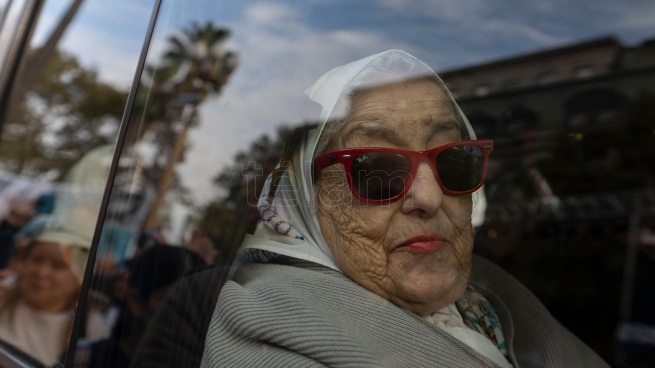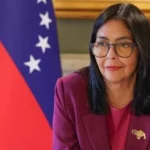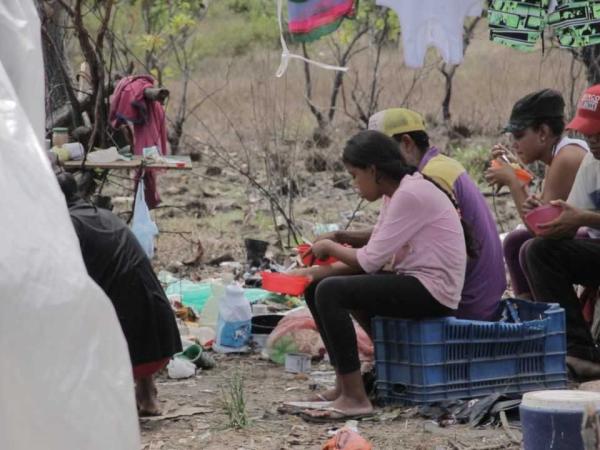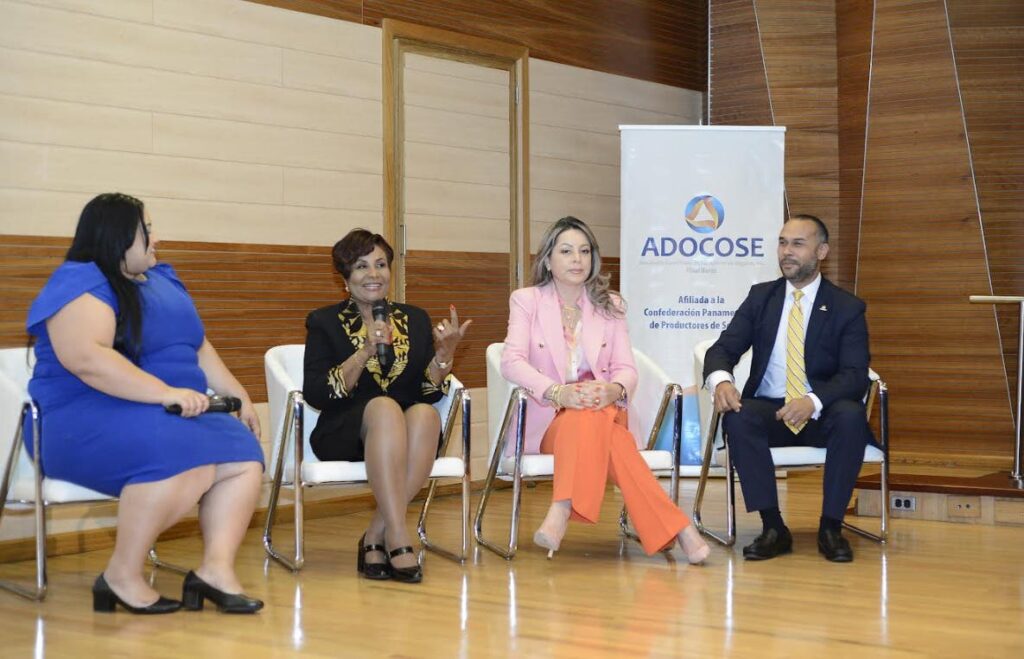The head of the Mothers of Plaza de Mayo Association, Hebe de Bonafini, affirmed this Saturday that “the revolution is made every day” and considered that “politics is not a way to look for work”, when she led a act for the 45th anniversary of the emblematic entity that defends human rights for denouncing the forced disappearances perpetrated by the last civic-military dictatorship.
“The revolution is made every day. We vindicate the struggle of our children. The revolution is made every day and it is solidarity, loyalty and love for the other. That was the fight that our children gave. Politics is not the way to look for work,” said Bonafini in a forceful speech delivered in the Plaza de Mayo, where a ceremony was held with the participation of other important speakers.

In addition, the historical leader of the human rights movement affirmed that she was “convinced” in relation to the task of young people, considering that the new generations “lead us a kilometer or two ahead, if not many more, in terms of clarity , strength and will”.
“My sons and daughters told me about the IMF (International Monetary Fund) and it seemed to me that it was not true, that it was too much. But the truth is that they advance and take everything. They are voracious,” he said.

In this sense, he criticized Economy Minister Martin Guzmán and the departure of the national government, pointing out that “it is not enough for people,” but he expressed that “one always has to have hope and expectation.”
“Our sons and daughters took a very important step in their lives and they knew what could happen to them, but that’s what revolution is. At least in those years,” he warned.
On the other hand, Hebe looked at the current context and maintained that children “no longer laugh in the neighborhood” and lamented inequality “in a rich country.”

“The owners of the fields earn any amount of dollars per month in a short time, an hour. And then they don’t want to put anything in,” he stressed.
“This square (Mayo) is to shout, denounce, to dream. It is very beautiful and things have to be done with joy and love. It is not done with weapons alone, it is done by transforming a country saying what one thinks without negotiating with whom does one look bad,” he said.
Moments before, the Minister of Community Development of the province of Buenos Aires, Andrés Larroque, affirmed that whenever one comes to the Plaza it is “to listen to the Mothers and to learn.”

“It’s 45 years. I was born in 1977 and it’s life itself. It’s almost half a century of struggle, example and prestige. It’s a long time to sustain the coherence and admiration that they arouse and everything that they were forging,” he said.
Larroque affirmed that a country without Peronism “has no chance of existing” and that no one “has to be angry” when they make “some declaration in order to find a solution at this time that we have to face.”
In his turn, Renato Di Nicola, a member of the Support Group for Mothers in Italy, stated that today “many young people come to see a revolutionary example of a struggle for love” like the one waged by the Mothers.

For his part, the journalist and lawyer for causes against humanity Pablo Llonto maintained that this date “is very special” because on April 30, 1977, when they began to meet in the Plaza de Mayo, the Mothers “danced alone”, paraphrasing the title of a song composed by the British musician Sting. “Look 45 years later how the Plaza and the country are and how our history knew how to recognize that group of Mothers,” he stressed.
And he added: “We have no doubt that there is a youth that will not abandon the flags of the Mothers and will always fill this Plaza.”

On behalf of the youth, the first speaker was Facundo Grande, a student activist from the La 25 group at the National College of Buenos Aires, who in his speech recognized that democracy “was forged by the Mothers of the Plaza de Mayo when no one risked it for the history”.
“Here there is a lot of love, a lot of feeling and emotion and there is conviction and loyalty for those Mothers who turn not only the pyramid but also history, leaving behind the most disastrous past of our country, which was the last military dictatorship,” he said.

In that sense, he reminded those young people who “militated for the national liberation project” as well as the one they want to carry out “raising those flags.”
Finally, he read an emotional poem written by a girl named Mirta Beatriz Lovazzano who disappeared when she was just 18 years old on May 29, 1976 and who was a member of the Colegio Nacional Buenos Aires.


















